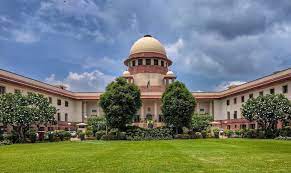The fact which is discovered as a consequence of the information given is admissible in evidence. Further, the fact discovered must lead to recovery of a physical object and only that information which distinctly relates to that discovery can be proved. Section 27 of the Evidence Act is based on the doctrine of confirmation by subsequent events – a fact is actually discovered in consequence of the information given, which results in recovery of a physical object. The facts discovered and the recovery is an assurance that the information given by a person accused of the offence can be relied. (Para 19)
The facts proved by the prosecution, particularly the admissible portion of the statement of the accused, would give rise to two alternative hypotheses, namely, (i) that the accused had himself deposited the physical items which were recovered; or (ii) only the accused knew that the physical items were lying at that place. The second hypothesis is wholly compatible with the innocence of the accused, whereas the first would be a factor to show involvement of the accused in the offence. The court has to analyse which of the hypotheses should be accepted in a particular case. (Para 23)
Section 27 of the Evidence Act is frequently used by the police, and the courts must be vigilant about its application to ensure credibility of evidence, as the provision is vulnerable to abuse. However, this does not mean that in every case invocation of Section 27 of the Evidence Act must be seen with suspicion and is to be discarded as perfunctory and unworthy of credence. (Para 24)
However, evidentiary value to be attached on evidence produced before the court in terms of Section 27 of the Evidence Act cannot be codified or put in a straightjacket formula. It depends upon the facts and circumstances of the case. A holistic and inferential appreciation of evidence is required to be adopted in a case of circumstantial evidence. (Para 30)
Our reasoning, which places reliance on Section 106 of the Evidence Act, does not in any way dilute the burden of proof which is on the prosecution. Section 106 comes into play when the prosecution is able to establish the facts by way of circumstantial evidence. On this aspect we shall delve upon subsequently. (Para 34)
The appellant – Perumal Raja @ Perumal in his statement under Section 313 of the Code of Criminal Procedure, 1973 plainly denied all accusations without furnishing any explanation regarding his knowledge of the places from which the dead body was recovered. In this circumstance, the failure of the appellant – Perumal Raja @ Perumal to present evidence on his behalf or to offer any cogent explanation regarding the recovery of the dead body by virtue of his special knowledge must lead to a reasonable adverse inference, by application of the principle under Section 106 of the Evidence Act, thus forming an additional link in the chain of circumstances. The additional link further affirms the conclusion of guilt as indicated by the prosecution evidence. (Para 40)
The whereabouts of Rajini @ Rajinikanth were unknown. The perpetrator(s) were also unknown. It is only consequent to the disclosure statement by the appellant – Perumal Raja @ Perumal, that the police came to know that Rajini @ Rajinikanth had been murdered and his body was first dumped in the sump tank and after some months, it was retrieved, cut into two parts, put in sack bags, and thrown in the river/canal. The police, accordingly, proceeded on the leads and recovered the parts of the dead body from the sump tank and sack bags from the river/canal. It has been also established that Rajini @ Rajinikanth was murdered. In addition, there have been recoveries of the motorcycle and other belongings at the behest of the appellant – Perumal Raja @ Perumal. These facts, in the absence of any other material to doubt them, establish indubitable conclusion that the appellant – Perumal Raja @ Perumal is guilty of having committed murder of Rajini @ Rajinikanth. The presence of motive reinforces the above conclusion. (Para 41)
In view of the above discussion, we have no difficulty in upholding the conviction of the appellant – Perumal Raja @ Perumal. The appeal is dismissed. (Para 45)
SUPREME COURT OF INDIA
2024 STPL(Web) 3 SC
[2024 INSC 13]
Perumal Raja @ Perumal Vs. State, Rep. By Inspector Of Police
Criminal Appeal No. 863 of 2024 (arising out of Special Leave Petition (Criminal) No. 863 of 2019)-Decided on 03-01-2024.
https://stpllaw.in/wp-content/uploads/2024/01/2024-STPLWeb-3-SC.pdf







